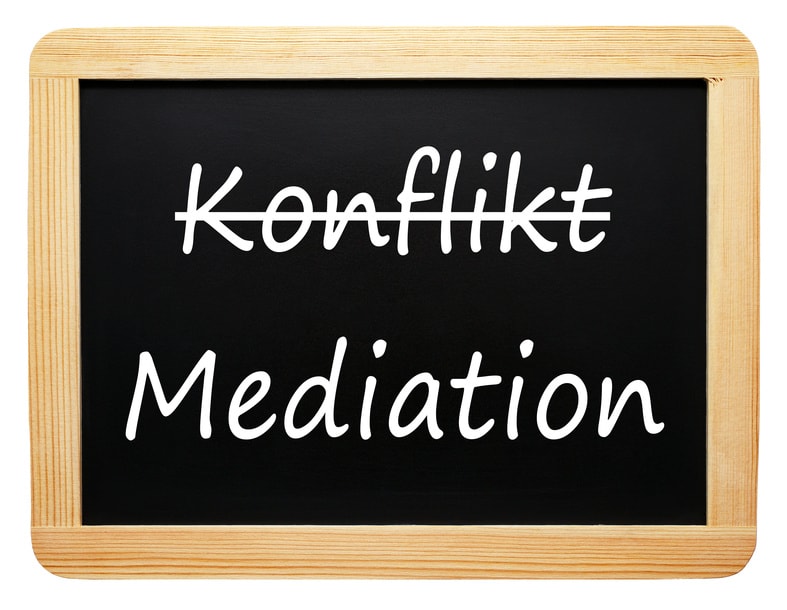
Mediation - Why modern conflict moderation is the tool of choice - 3 Mediation
Conflicts are the expression of unfulfilled needs.
- Behind every conflict are needs that are legitimate and important for the respective person because they serve the life and growth of every human being.
- Conflicts arise where people are restricted in their needs.
- Mediation is NOT about finding out who is RIGHT ? nor is it about finding a supposed objective truth.
- Basic assumption: the conflict parties carry the solution within themselves because they themselves are experts on their conflict.
- There is only ONE truly viable solution to a conflict: namely, the one that the parties to the conflict develop.
- The mediator is responsible for ensuring that the parties to the conflict share and listen to each other in a constructive way and that the main points of the conflict are identified.
- The conflict parties are ACTIVELY involved in the clarification process at all times.
- Mediation does not only settle the conflict on the surface. It is above all about, the relations between the conflict parties, also with a view to the future.
- In other words, a viable & sustainable solution on the one hand. And a basis for an open and strengthened conflict culture on the other.
- The aim of mediation is to support the mediators in finding an appropriate solution for their area of conflict on their own responsibility.
- Everyone involved comes out of it with the feeling that they have gained something.
- Participation in the mediation process must be voluntary.
If not now, when?
